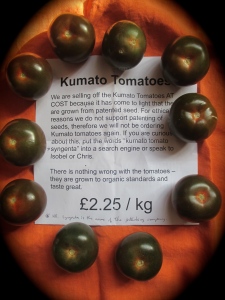Last week I taught a fermenting workshop and did some demonstrating and q-and-a, as part of the really brilliant Liverpool Food for Real Film Festival put on by Squash Nutrition and Liverpool Food People, “a network of food growers, composters, buyers, cooks and eaters passionate about a positive healthy food culture for lovely Liverpool.” If you are working in your way towards food justice and urban growing, health and food sustainability and local responses to hunger– the whole shebang– it’s really worth looking up these groups and exploring what and how they do things. They are energetic, creative people working hard in unique, inspired ways. I fell in love with them, and with Liverpool. From my point of view, I was really glad as well to be sharing my knowledge with a truly multi-aged and multiethnic group of people, much more diverse than usual. This made for an especially interesting conversation about how people were going to go home and integrate these new food preparation techniques into their home cuisines.
I also had the opportunity to see a stunning film, Read the rest of this entry »




